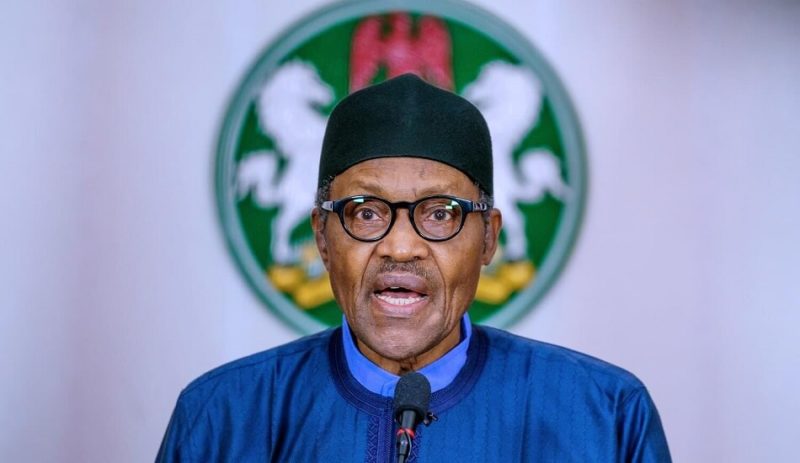President Muhammadu Buhari on Friday expressed dissatisfaction over the performance of the Nigerian economy.
Buhari said this during an interview with the Nigerian Television Authority which was monitored by THE WHISTLER.
Advertisement
He said that the poor performance of the economy has made him to speak to government of other countries to persuade their multinational companies to invest in Nigeria.
Buhari who admitted that the country’s high population is one of its major problems, stated that increase in investment would help to create jobs and reduce the level of unemployment in the country.
The President said with increase in investment inflows, the government will be able to boost output and increase the growth rate of the economy.
When asked by the interviewer if he was satisfied with the economy, he said, “No I’m not satisfied with performance of the economy.
Advertisement
“I will persuade the foreign countries to allow their multinational to develop more confidence in Nigeria and come and invest.
“This will help us create more employment.”
A review of the key economic indicators for the Nigerian economy between 2015 to Q1 2021, suggests sub-optimal performance.
In 2014, the Nigerian economy was growing steadily at about 6.5% until policy inconsistencies forced the economy into a self-inflicted recession in 2016.
The government responded with an Economic Recovery Growth Plan. The plan promised, but was unable to stem the economic decline to deliver seven per cent growth by 2020.
Advertisement
Unfortunately, as a result of cost push factors, by March 2021 inflation was up by 18.2%. Food inflation, at just over 22%, is the key driver of inflation, despite a N1.5tn intervention by the Central Bank of Nigeria in the agriculture sector.
The recent hike in utility rates and fuel subsidy removal has done nothing but sustain the upward trajectory of inflation rates.
The Naira suffered over 300 per cent devaluation as it moved from N160/$1 to N500/$1 in the parallel market under the review period.
The static exchange rate mechanism and multiple exchange rate windows have been a sore point.
They remain in place, despite calls for a single window and a market-driven rate mechanism.
Since the 2016 downturn, the Nigerian economy has not grown beyond 2.5 per cent, considering its population growth rate of 3.5 per cent.



